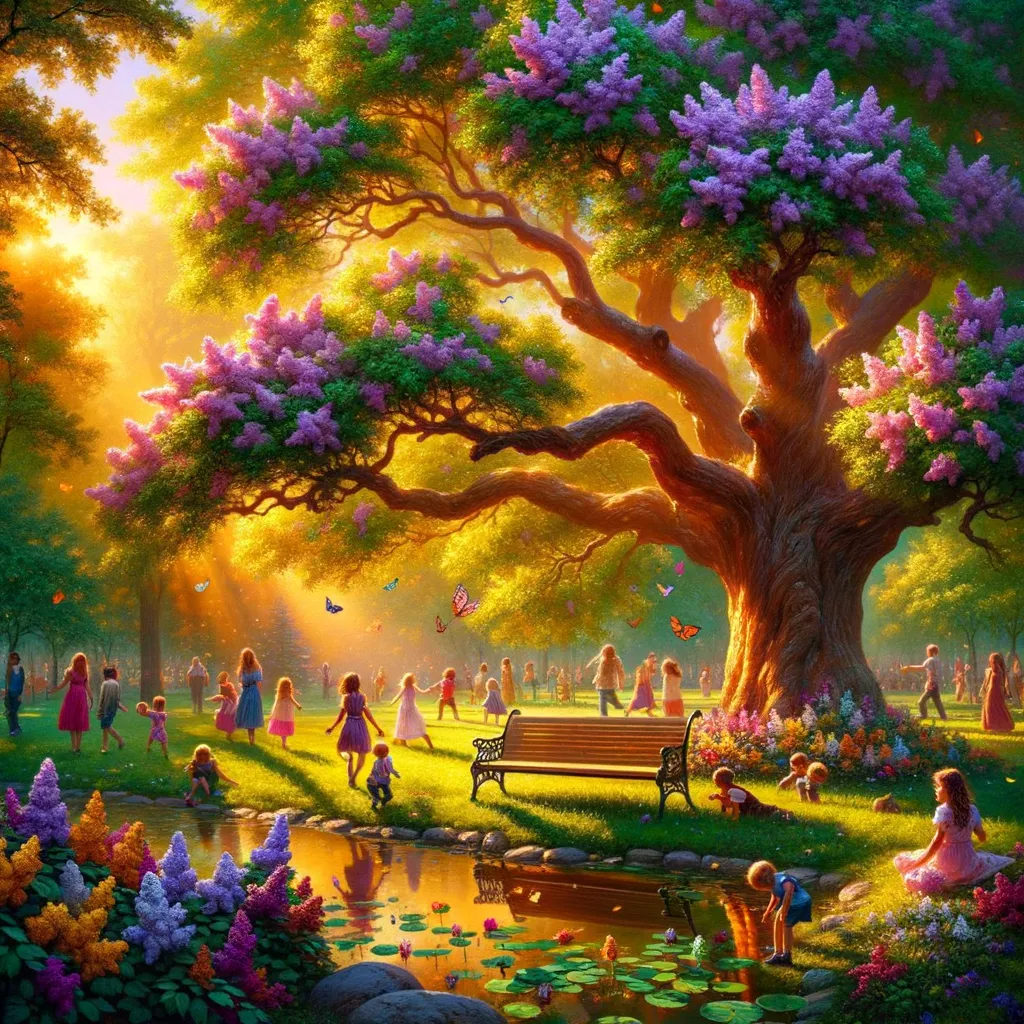A Cosmic Garden: Unveiling Simplicity in Complexity
On a sun-drenched afternoon, a child discovers the universe through the wise words of a grandfather, who effortlessly transforms the vastness of space into a relatable garden. With each celestial body likened to a unique flower, a tapestry of interconnectedness unfolds, revealing the beauty hidden within complexity. As stories dance like fireflies, a spark of curiosity ignites, leading to profound realizations about the harmony of existence and the relationships that bind all things. This moment, steeped in simplicity, becomes a cherished memory, a philosophy for navigating life’s challenges with wonder and humility. Years later, the garden remains a guiding metaphor, reminding all that the most significant insights often blossom from the simplest truths.
In the memory of June 4, 2016, I found myself sifting through the remnants of childhood, chasing the echoes of a summer afternoon spent in the backyard with my grandfather. The sun hung low in the sky, casting a warm glow that turned the world into a palette of gold and green. It was one of those days where time seemed to stretch, allowing for the kind of conversations that linger in the corners of your mind long after the moment has passed. Little did I know that this seemingly ordinary day would unravel into an extraordinary lesson that would shape my understanding of complexity and simplicity.
My grandfather, with his weathered hands and twinkling eyes, had a knack for transforming the intricate into the accessible. That day, he introduced me to the concept of the universe—an idea so vast it felt like trying to grasp the ocean with a single cup. He spoke of stars and galaxies, of time and space, weaving stories that danced like fireflies in the twilight. Yet, amidst the cosmic wonder, he anchored his explanation with a simple metaphor: the universe was like a garden. Each star, a flower; each planet, a unique bloom in a vast, interconnected ecosystem.
As he spoke, I could almost see the garden unfurling before me, each celestial body a petal in a cosmic bouquet. The metaphor ignited a spark of curiosity within me, igniting a sense of wonder that was both exhilarating and daunting. How could something so expansive and intricate be distilled into the image of a garden? The surprise of such simplicity nestled within complexity struck me, challenging my understanding of both the universe and the very act of learning itself.
The more he explained, the more I realized that the beauty of the universe lay not just in its grandiosity but in its interconnectedness. Each flower relied on the soil, the sun, and the rain—much like how every star depended on the cosmic forces that shaped them. In this way, I began to see the universe not merely as a collection of isolated entities but as a harmonious symphony, each note contributing to a greater composition. This realization wrapped itself around my heart, planting seeds of empathy and curiosity that would blossom in the years to come.
As the sun dipped below the horizon, painting the sky in hues of orange and purple, my grandfather leaned back in his chair, a satisfied smile on his face. It was as if he knew he had handed me a gift—an understanding that would grow with me, much like the garden he had so vividly described. Yet, the true surprise lay not only in the knowledge shared but in the profound connection we forged through that simple metaphor. It was a moment that transcended words, a silent pact of discovery between generations.
Years later, as I navigated the complexities of adulthood, I often returned to that garden. Whenever I faced challenges that seemed insurmountable, I would remember my grandfather’s wisdom, the way he had woven simplicity into complexity. Life, I realized, was much like that garden, filled with both chaos and order, beauty and decay. It was a reminder that understanding often comes from reframing the lens through which we view the world.
In the labyrinth of life’s intricacies, I found that the most profound lessons often emerge from the simplest of truths. Each challenge I encountered became a flower to tend, a mystery to unravel. I learned to embrace the unknown, to find joy in the journey of discovery rather than the final destination. The garden had not only been a metaphor but a philosophy—a way of engaging with the world that invited wonder and humility.
As I reflect on that June afternoon, I am struck by the realization that the most significant lessons often come dressed in the garb of simplicity. They challenge us to look deeper, to dig beneath the surface and unearth the connections that bind us all. In a world filled with complexity, it is often the simplest ideas that resonate the most profoundly.
The memory of that day serves as a gentle reminder that every conversation holds the potential for revelation, that every shared moment can cultivate understanding. It beckons us to approach life with the same curiosity my grandfather had instilled in me, encouraging us to view the universe as a garden, ripe with possibilities.
As I close my eyes and picture that golden afternoon, I can’t help but wonder: What gardens are waiting to be discovered in your own life, and what simple truths might reveal themselves amidst the complexity?
In the tapestry of existence, the most profound truths often bloom in the simplest gardens, inviting exploration and connection amid life’s intricate dance.



